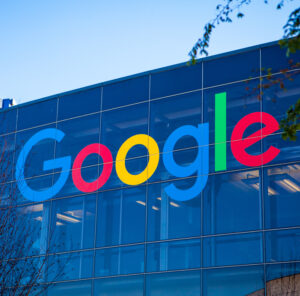As clients look for alternatives to third-party cookies, ad agency Dentsu can steer them to its in-house Contextual Intelligence tool, which launched today.
Although contextual targeting is often considered inferior to demographic or behavioral targeting, it can drive performance.
Jewelry retailer Pandora piloted the tool during the 2022 Valentine’s Day season. Ads placed using the solution represented 2% of campaign spend but drove 36% of revenue, a 24x return on investment, according to Dentsu. (Campaign performance was measured using a first-party tracking pixel that followed users who clicked the ads to a landing page and determined whether they completed a purchase.)
Dentsu believes an in-house solution will enable its advertiser clients to have more transparency into their contextual programmatic deals than they would get from a third-party partner, said Dentsu Media Chief Product Officer Akash Jairath.
Using the solution’s interface, advertisers will be able to see the actual site content they purchased ads on and how their criteria resulted in those placements, allowing them to fine-tune their criteria and zero in on site content that complements their campaigns, Jairath said.
Contextual Intelligence was built using proprietary technology, although its machine-learning algorithm relies on AFINN sentiment analysis and standard audience taxonomies from the IAB, IBM Watson and Google. Together, the tech parses text-based digital content at the URL level and creates targetable audiences for programmatic open-web placements on individual articles. In order to generate a list of URLs with available programmatic inventory, the algorithm ingests data from the bidstream. The list of URLs is updated daily.
The solution works on a pre-bid basis, according to a Dentsu spokesperson. Marketers input keywords related to their campaigns, then select from a list of relevant URLs sold via Dentsu’s demand-side partners, including Xandr and DV360. Marketers pay a CPM-based fee for each ad placement. They can refresh their targeting parameters on a daily basis.
Dentsu will add a DSP integration with The Trade Desk within the next few months.
Dentsu rolled out this DSP-focused solution in the US to complement its SSP-connected Contextual Intelligence solution for the UK, which has been on the market since 2016. Dentsu plans to integrate the US and UK offerings, then roll out the unified solution globally, although the company declined to share a specific timeline for these plans.
Contextual Intelligence’s machine-learning algorithms were trained using the English language, hence the initial rollout in the UK and US. Dentsu plans to expand the offering to other languages as part of the wider global rollout.
At launch, the Contextual Intelligence solution is intended for display and video ad placements on websites, but Dentsu plans to announce functionality for CTV by the end of the year. For the CTV piece, Dentsu will likely partner with a vendor that has already invested in developing contextual targeting for CTV, Jairath said.
Contextual targeting is one of many tools Dentsu is deploying for a future built without third-party cookies. And Dentsu plans to make its identity platform for ID-based targeting, its Contextual Intelligence tool and its Attention Economy measurement solutions interoperable by 2023 at the latest, Jairath said.
Contextual Intelligence is now available across Dentsu’s US agencies Carat, Dentsu X and iProspect.
This article was updated to clarify that Contextual Intelligence works on a pre-bid basis.
















